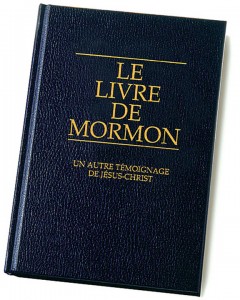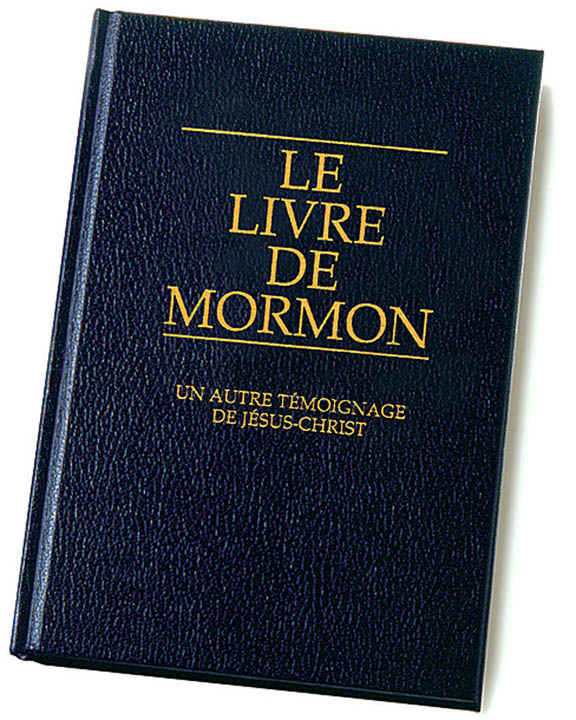The Book of Mormon chronicles the history of the family of Lehi, a prophet who lived in Jerusalem in 600 BC. After being instructed by God to flee into the wilderness to protect his life, Lehi’s family was led by God to a personal promised land across the waters, in what is now the Americas.
 After Lehi’s death, the family and those who had joined them on their journey split into two groups. The Nephites followed the fourth son, Nephi, who was righteous and loved God. The Lamanites followed Laman, the oldest son who rebelled and became very wicked. The Nephites moved to a new area to escape the brutality and persecution of the Lamanites, under the leadership of Nephi.
After Lehi’s death, the family and those who had joined them on their journey split into two groups. The Nephites followed the fourth son, Nephi, who was righteous and loved God. The Lamanites followed Laman, the oldest son who rebelled and became very wicked. The Nephites moved to a new area to escape the brutality and persecution of the Lamanites, under the leadership of Nephi.
After Nephi’s death, his younger brother Jacob assumed leadership of the church, while another man was appointed king. Jacob wrote that Nephi’s death led to changes in the until-then righteous Nephites:
15 And now it came to pass that the people of Nephi, under the reign of the second king, began to grow hard in their hearts, and indulge themselves somewhat in wicked practices, such as like unto David of old desiring many wives and concubines, and also Solomon, his son.
16 Yea, and they also began to search much gold and silver, and began to be lifted up somewhat in pride. (Jacob 1)
We seen from Jacob’s brief summary the problems the small society faced: a hardness of the heart, immorality, corruption of the family unit, a love of money, and pride. These particular sins are primary destroyers of the spirit and in future chapters, Jacob will address these in sermons to the people. The fact that he was able to deliver a sermon to them suggests they had not stopped attending church. These were the members of the church living in this way.
It can be very easy for good people to slide into unworthiness. As we’ve discussed in previous articles, Satan doesn’t take perfectly good people and instantly turn them into bad people. He leads them away carefully and gently in small steps. The problems Jacob outlined didn’t suddenly begin upon the death of Nephi.
Nephi’s final sermon had expressed concern that the people seemed puzzled by the teachings he offered, unable to figure out what they meant. He had seen this often with his two oldest brothers, who would listen to their father’s sermon, and then go to Nephi for explanation. When he asked if they had inquired of God, as he had, they said they hadn’t.
Now Nephi and his two younger brothers saw this same problem developing in their own people. It was perhaps this problem that started the other problems. When the people stop going to God for counsel and instruction, they forget how to hear the Holy Ghost. From that point, it becomes easy for Satan to introduce other sins, since the people are no longer hearing the warnings of the Spirit.
Nephi had mentioned previously that his people prospered due to their righteousness. Repeatedly, in the Book of Mormon, we see that as people are blessed as a society, they forget where the blessings came from and begin to credit themselves for their prosperity. With an unwillingness to approach God for guidance and a forgetfulness of God’s blessings, it is but a small journey into the other sins mentioned.
Jacob’s concerns have two factors: The lack of individual worthiness and the carry-over into the larger society. To fix a nation, we must first fix the individuals. Being a member of the church and attending services does not make you a Christian. Only keeping the commandments and centering your life around Christ, crediting Him for all that is good, can make you a true Christian.
The late Terrie Lynn Bittner—beloved wife, mother, grandmother, and friend—was the author of two homeschooling books and numerous articles, including several that appeared in Latter-day Saint magazines. She became a member of the Church at the age of 17 and began sharing her faith online in 1992.


